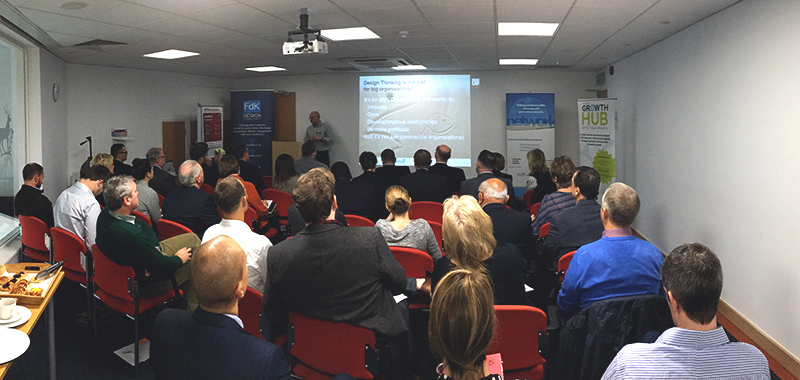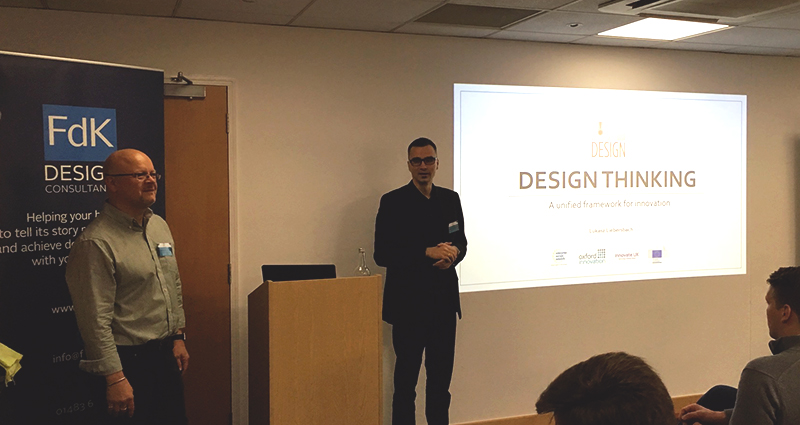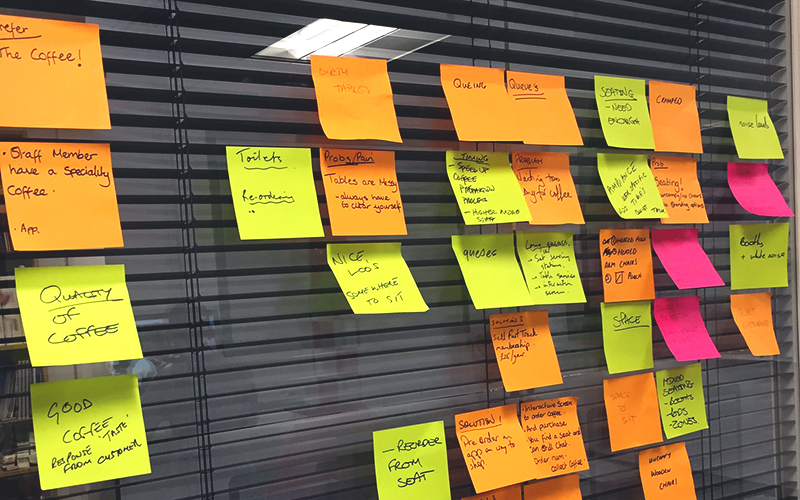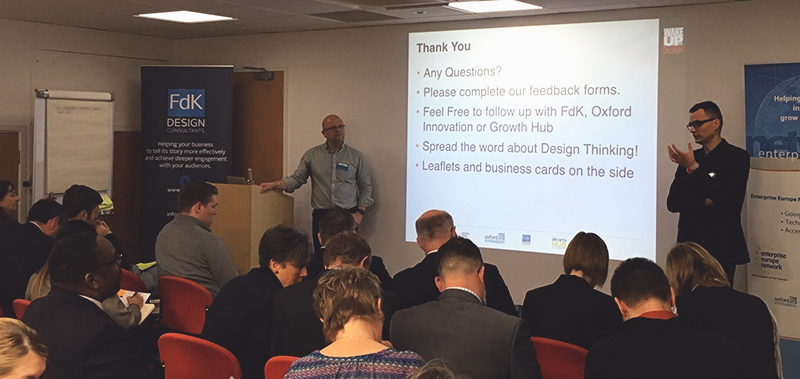On Thursday 17 November we hosted a morning workshop on Design Thinking, in partnership with Oxford Innovation and M3 Growth Hub.
The workshop was held at the Surrey Technology Centre and was made up of two presentations:
Lukasz Liebersbach from Oxford Innovation first discussed the origins of Design Thinking and its potential as a unified framework for innovation.
After that, our own Simon de Kretser explained how to apply it to business, regardless of experience, industry or size.
A wide variety of people from a number of industries attended the event, some had experience with Design Thinking already but most were going in completely blind.
Lukasz believes that design is a strong driver of innovation. He helps companies understand the benefits of design and how to apply the design thinking approach to their product and service development process.
His presentation started with the origin of Design Thinking and how it began with a man named David Kelley who founded the d.school at Stanford University and the design and innovation company IDEO.
These two quotes will help give you an idea:
“Design thinking can be described as a discipline that uses the designer’s sensibility and methods to match people’s needs with what is technologically feasible and what a viable business strategy can convert into customer value and market opportunity.”
– Tim Brown CEO, IDEO
“Most people make the mistake of thinking design is what it looks like. People think it’s this veneer – that the designers are handed this box and told, ‘Make it look good!’ That’s not what we think design is. It’s not just what it looks like and feels like. Design is how it works.”
– Steve Jobs, Apple
Ultimately, it is a methodology used to solve problems. It draws upon logic, imagination, intuition, and systemic reasoning and often centres around a collaborative and multi-disciplinary approach that involves more than just designers to see work.
Lukasz continued to talk about the 5-stage process involved with Design Thinking: Empathise, Define, Ideate, Prototype and Test.
He went through each one and explained what is involved at each stage, how designers and design led businesses implement them and why they are so important.
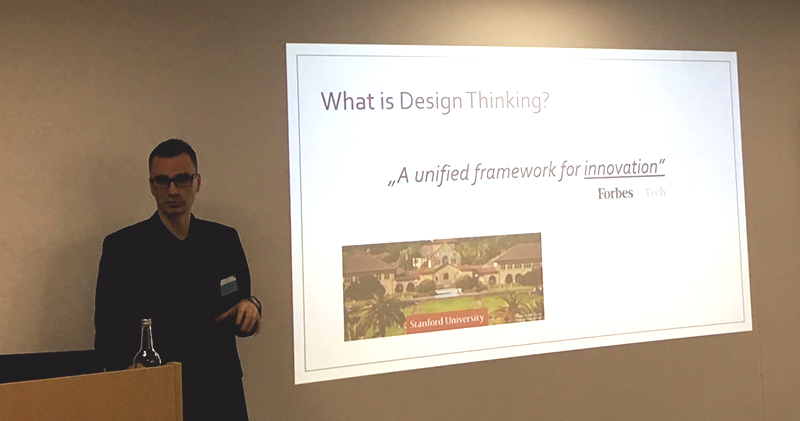
Once delegates had got to grips with Design Thinking and how it works, Simon took over.
Simon is an experienced communication designer helping businesses to tell their stories and engage with their audiences through design and design thinking.
Over recent years, he has been increasingly interested in sharing his collected experience and knowledge of design thinking and how it relates to all areas of business.
He made it very clear right off the bat that Design Thinking is not about being a designer or having any experience in design, but it is about thinking like a designer.
To help reinforce that point, he had prepared a scary interactive bit!
A perfect opportunity for delegates to put Design Thinking into practice and visualise how it works.
He asked them to think about their coffee shop experience and interview the person next to them to find out their problems, pains and preferences, writing them on sticky notes and putting them in order of priority, considering solutions for the top three.
This encouraged a free-thinking approach to problem solving in a creative environment, where no idea was a bad idea.
It helped get across the point that you should empathise with your audience/users and seek the right questions before looking for the correct answer.
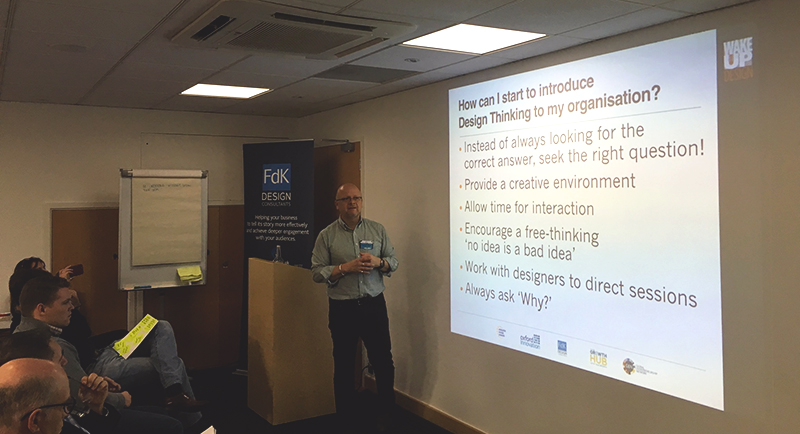
We had a full house for the event (hopefully because of the interesting subject and not the free bacon rolls!) and considering the feedback we received, everyone went away with a clear understanding of how Design Thinking works and how it can be used to help solve problems and encourage innovation.
With this in mind, we are very keen to put on more events and hope to take over a bigger venue with more speakers and more interactive elements.
So if you are interested in attending an event in the future please keep an eye on our website or follow us on Twitter @FdK_Studio.
If you have any questions in the meantime, feel free to contact Lukasz by email.
Wake Up Design | Oxford Innovation | Enterprise M3 Growth Hub
